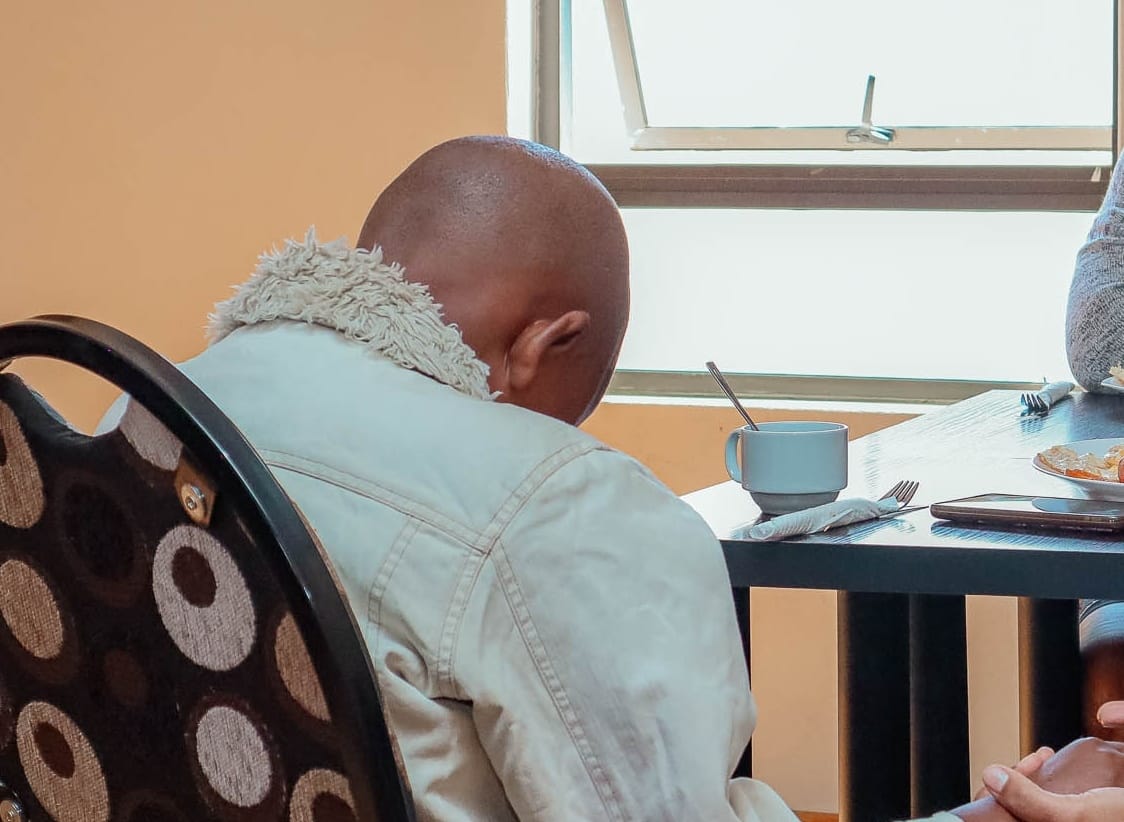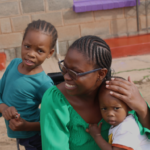Nicole Tau
During school hours, the sight of young children roaming the streets should be unusual, after all, they are supposed to be in class. Yet in Lesotho, this is a common situation for children who should be in preschool.
The culprits? A lack of financial resources and awareness about the importance of early education. The conditions are even direr in rural areas, where, even when preschools are available, children often face the daunting challenge of traveling long distances, sometimes alone, just to reach them.
Such scenes are a stark reminder of the uphill battle Lesotho and many other Southern African countries face when it comes to Early Childhood Development (ECD). Despite growing evidence of its transformative power, ECD remains one of the most underfunded and neglected sectors in the region.
But there is hope. Earlier this last month, in November, Lesotho hosted the Southern Africa Regional Early Childhood Development and Education Conference, bringing together government leaders, international organisations, and experts from across the region. The message was clear: investing in ECD is not just about children; it is about the future of Southern Africa itself.
To understand why ECD matters, think of it as a foundation. From birth to age eight, a child’s brain develops faster than at any other time in their life, forming the groundwork for their health, learning, and behaviour. These early years are crucial.
According to the communique issued at the Southern Africa Regional Early Childhood Development and Education Conference, children who receive proper care, nutrition, and stimulation during this period are more likely to succeed in school, stay healthy, and become productive adults.
ECD is not just about teaching ABCs. It is about ensuring that children have access to proper nutrition and medical care to grow strong and resilient, exposure to play, books, and stimulating activities that ignite curiosity and an environment where they feel valued and secure, enabling them to explore and grow.
In short, ECD is the starting line for life. But in Lesotho, many children do not even make it to that line.
Lesotho’s ECD landscape paints a worrying picture.
According to UNICEF, only 33 percent of children in the country have access to pre-primary education. By comparison, South Africa boasts an access rate of over 90 percent. In rural areas, the disparity is even starker, where poverty, limited infrastructure, and long distances to schools keep many children out of early learning programs.
The challenges do not end there. Malnutrition affects 27 percent of children under five in Lesotho, leaving them stunted and impairing their brain development. And while the government has policies supporting ECD, only two percent of the national education budget is allocated to this critical sector, far below the recommended 10 percent.
These numbers are not just statistics; they represent futures at risk.
Children who do not receive adequate care and education early in life are more likely to drop out of school, struggle to find work and remain trapped in cycles of poverty.
Lesotho’s struggle with ECD is mirrored across Southern Africa, but there are lessons to be learned from its neighbours.
In South Africa, pre-primary education is now compulsory, with free meals provided in many schools. Namibia offers free education for children aged 4 to 5, while Botswana has made significant investments in teacher training and subsidies for preschool programs.
These efforts show what is possible with political will and proper funding. But Lesotho faces unique challenges. Its mountainous terrain and small budget make reaching rural communities especially difficult. Yet, the recent conference in Maseru signaled a growing recognition that partnerships, with organisations like UNICEF, the Roger Federer Foundation, and local NGOs, could be the key to overcoming these barriers.
The communique from the Maseru conference stressed the importance of a multi-sectoral approach to Early Childhood Development, calling for collaborative efforts among governments, civil society, and international partners.
Why does ECD matter so much? The answers go far beyond the classroom.
First, investing in ECD is one of the smartest economic decisions a country can make. According to the World Bank, every $1 spent on ECD generates up to $13 in long-term returns. This is because children who receive proper care and education early in life are healthier, more employable, and less likely to depend on social services.
ECD also has the power to break cycles of poverty.
Consider this: a child who grows up malnourished and misses out on early learning is less likely to finish school or find a stable job. But with the right start, that same child could become a teacher, entrepreneur, or leader, contributing not only to their family’s well-being but to the nation’s development.
And ECD benefits everyone, not just children. It allows parents, especially mothers, to work, improving household incomes and advancing gender equality. Communities become safer, healthier, and more prosperous when their youngest members are nurtured.
The communique issued at the conclusion of the event highlighted ten critical actions to advance Early Childhood Development across Southern Africa. Among these were calls for free, compulsory pre-primary education for all children, training more ECD teachers in culturally relevant play-based methods, and forging partnerships to fund sustainable programs.
These are not abstract ideas, they are actionable steps that can create real change. For instance, Namibia’s investment in free education for 4- and 5-year-olds shows how prioritising ECD can quickly improve access. South Africa’s focus on teacher training demonstrates the importance of building a skilled workforce.
Lesotho has a long way to go, but it also has unique strengths. Community-driven initiatives, such as home-based preschools, offer a way to reach rural children. Partnerships with organisations like the World Food Programme, which supports school feeding programs, can help combat malnutrition.
NECDOL, a key player in Lesotho’s ECD landscape, remains hopeful.
“From NECDOL, all we can say is that we hope the lessons learned from the conference can be implemented throughout the region, and the newly proposed initiative of the Toy Library can be realised in different countries,” the co-founder and Director of NECDOL, Shoeshoe Mofokeng noted.
She added: “We are looking forward to working together with all ECDE stakeholders to ensure all children have access to equitable, quality services and a good foundation in life.”
At the heart of ECD is a simple truth: children are not just the responsibility of parents, they are the society’s most valuable resource. And as Chair of the Social Cluster Committee in Lesotho, Makhalanyane Mokhothu, put it, “Our work is to make sure that we enact the laws that protect our children.”
The stakes could not be higher. By 2050, Africa will be home to one-third of the world’s youth. If we invest in ECD now, we can equip this generation to tackle challenges like poverty, inequality, and climate change. If we don’t, we risk perpetuating cycles of struggle and lost potential.
Lesotho’s story is not unique, but it is urgent. The time to act is now, because the future of Southern Africa begins in the small, eager faces of its youngest children.
Summary
- According to the communique issued at the Southern Africa Regional Early Childhood Development and Education Conference, children who receive proper care, nutrition, and stimulation during this period are more likely to succeed in school, stay healthy, and become productive adults.
- It is about ensuring that children have access to proper nutrition and medical care to grow strong and resilient, exposure to play, books, and stimulating activities that ignite curiosity and an environment where they feel valued and secure, enabling them to explore and grow.
- Children who do not receive adequate care and education early in life are more likely to drop out of school, struggle to find work and remain trapped in cycles of poverty.

Your Trusted Source for News and Insights in Lesotho!
At Newsday Media, we are passionate about delivering accurate, timely, and engaging news and multimedia content to our diverse audience. Founded with the vision of revolutionizing the media landscape in Lesotho, we have grown into a leading hybrid media company that blends traditional journalism with innovative digital platforms.








